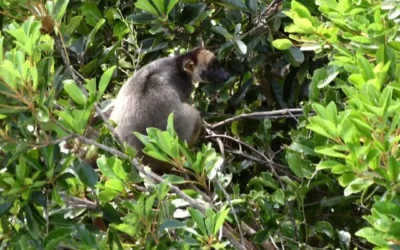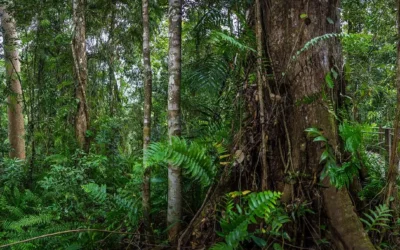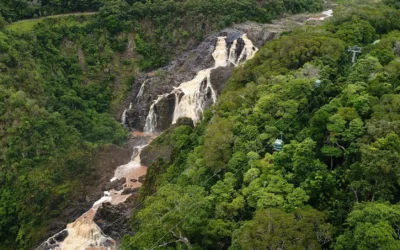Tropical Rainforest Orchids
In Tropical North Queensland there is a vast, lush area known as the Wet Tropics World Heritage rainforest which is bursting with a rich abundance of biodiversity, and a plethora of tropical rainforest orchid species to admire when in bloom.
Orchids are known for their exquisite beauty, delicate fragrance, and colourful flowers.
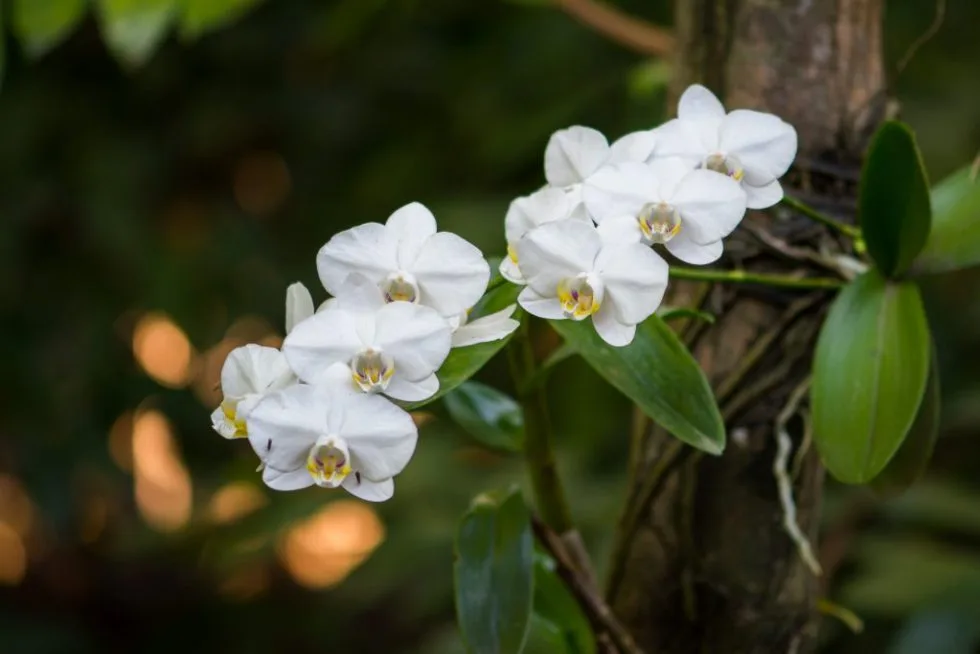
Dendrobium White Orchid
Ancient Origins of Orchids
The orchid family (Orchidacea) is considered to be one of the oldest families of flowering plants and some of the most diverse of all plant species with approximately 28,000 different varieties. Scientists believe they have been around since the age of the dinosaurs, significantly around 83 million years. The research of Australia’s major orchid lineages is being conducted right here in Cairns at the Australian Tropical Herbarium, led by Dr Katherina Nargar, a molecular systematist and evolutionary biologist with the CSIRO (Commonwealth Scientific and Industrial Research Organisation, an Australian Government agency responsible for scientific research).
From the deep dark forest floor to the upper reaches of the tropical rainforest there is an abundance of microhabitats to nurture a variety of different orchids. Home to over 230 species of tropical rainforest orchids.
Their evolution in the tropical rainforest has evidently allowed them to adapt a remarkable growth habit of where they grow and how they survive. Clinging to trees (epiphytes), rocks (lithophytes) and in the ground (terrestrials). Their intricate aerial root systems allow them to absorb moisture and nutrients from the humid tropical rainforest air surrounding them.
Thriving in the tropical climate through unique relationships with bees, butterflies and other insects to ensure successful reproduction despite their dense environment. Mimicking shapes, colours or scents to attract male pollinators ensuring their pollen is transferred to other flowers for fertilisation.
How do orchids grow in the rainforest?
An orchid’s leaf structure is dependent on its habitat. Epiphytic and Lithophytic orchids will have thick leaves with a waxy feel to them. This is to help them retain water when their host tree branch or rock face eventually dries out.
Many tropical rainforest orchids exhibit bilaterally symmetry, meaning they have mirror image halves! Examples of orchids that have this symmetry are the subfamily Epidendroideae, which also includes the popular orchid genera like Moth orchids (Phalaenopsis), Cattleya orchids and Dendrobium.
Additionally, some orchids may display irregular shapes and have evolved unique floral structures, such as the Slipper orchid (Cypripedioideae).
The vast array of tropical rainforest orchid shapes reflect the remarkable ability of evolution on this diverse plant family to attract specific pollinators.
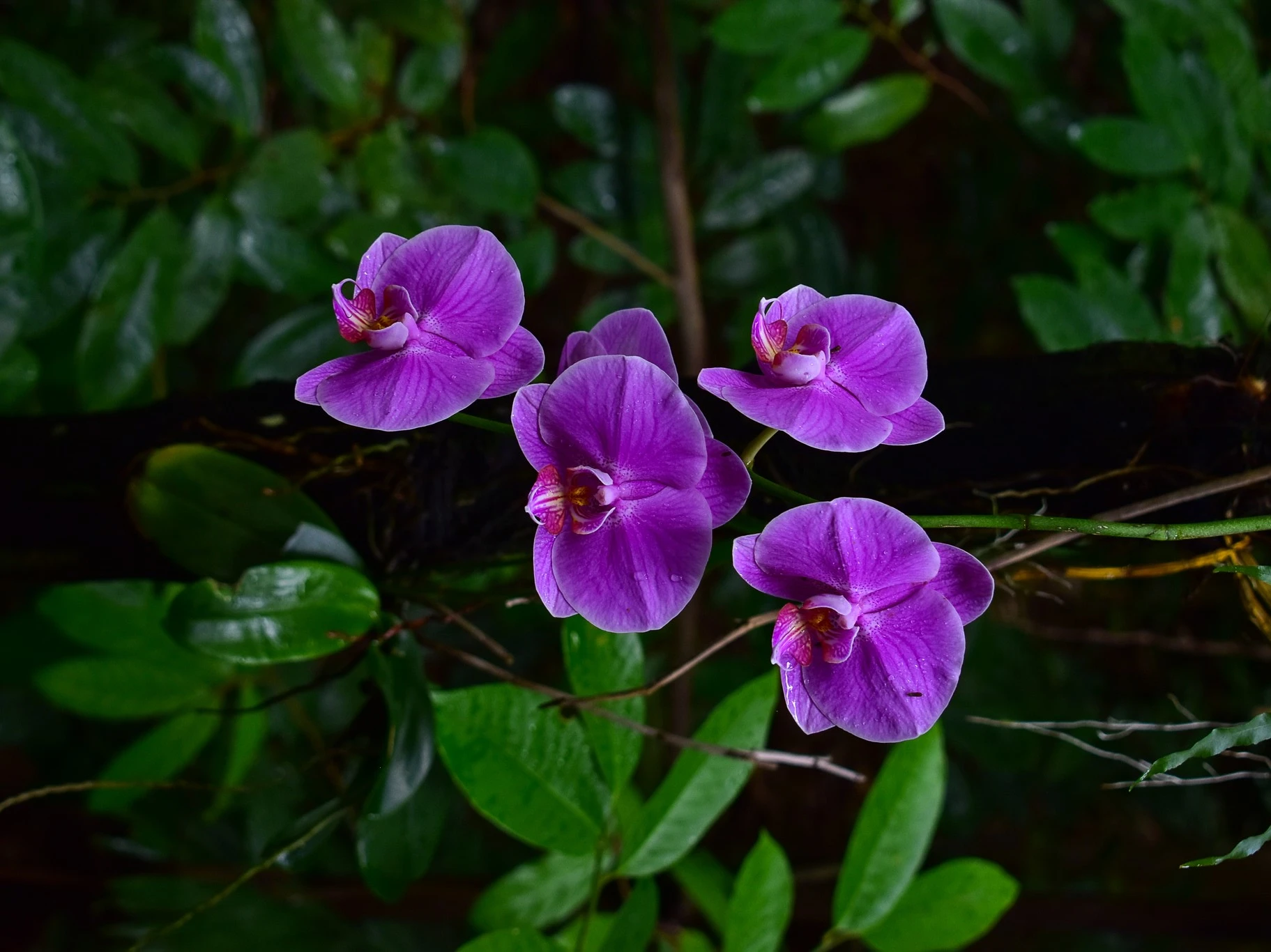
The Cooktown Orchid, Dendrobium – Moth Orchid
Tropical rainforest orchids at Skyrail Rainforest Cableway
Skyrail’s Smithfield Terminal is home to a variety of epiphytic orchids, some great examples of which can be seen in the front garden that borders the entry ramp into our ticketing lobby.
The Dendrobium is a huge genius of orchids and today contains about 1,800 species varying in forms, sizes and colours. Most plants will produce 10-12 flowers per stem, with each orchid measuring 1-2 inches across in beautiful shades of white, red, pink and purple. Found flowering in the gardens around Skyrail’s Smithfield and Kuranda Terminals during our winter and spring seasons – or following large rain events which are common in this tropical climate.
Did you know that Dendrobium bigibbum, commonly known as the Cooktown Orchid, is the floral emblem of Queensland? It’s one of Australia’s most vibrant and well-known orchid species, renowned for its stunning colors and unique beauty.

King Orchid in bloom at Red Peak
Discover naturally occuring orchids
At Red Peak / Guriguri Bunda:, when exploring the rainforest boardwalk, if you look up you may notice the impressive King Orchid (Thelychiton speciosus) clutching a tree branch above your head. Found between the large 400 year old Queensland Kauri Pine tree and the lookout over the Barron Gorge National Park.
The King Orchid is an iconic species native to Australia with impressive size and beauty. It has long arching stems and large clusters of fragrant flowers when in bloom. The King orchid at Red Peak blooms on average every three years and is a stunning sight to see!
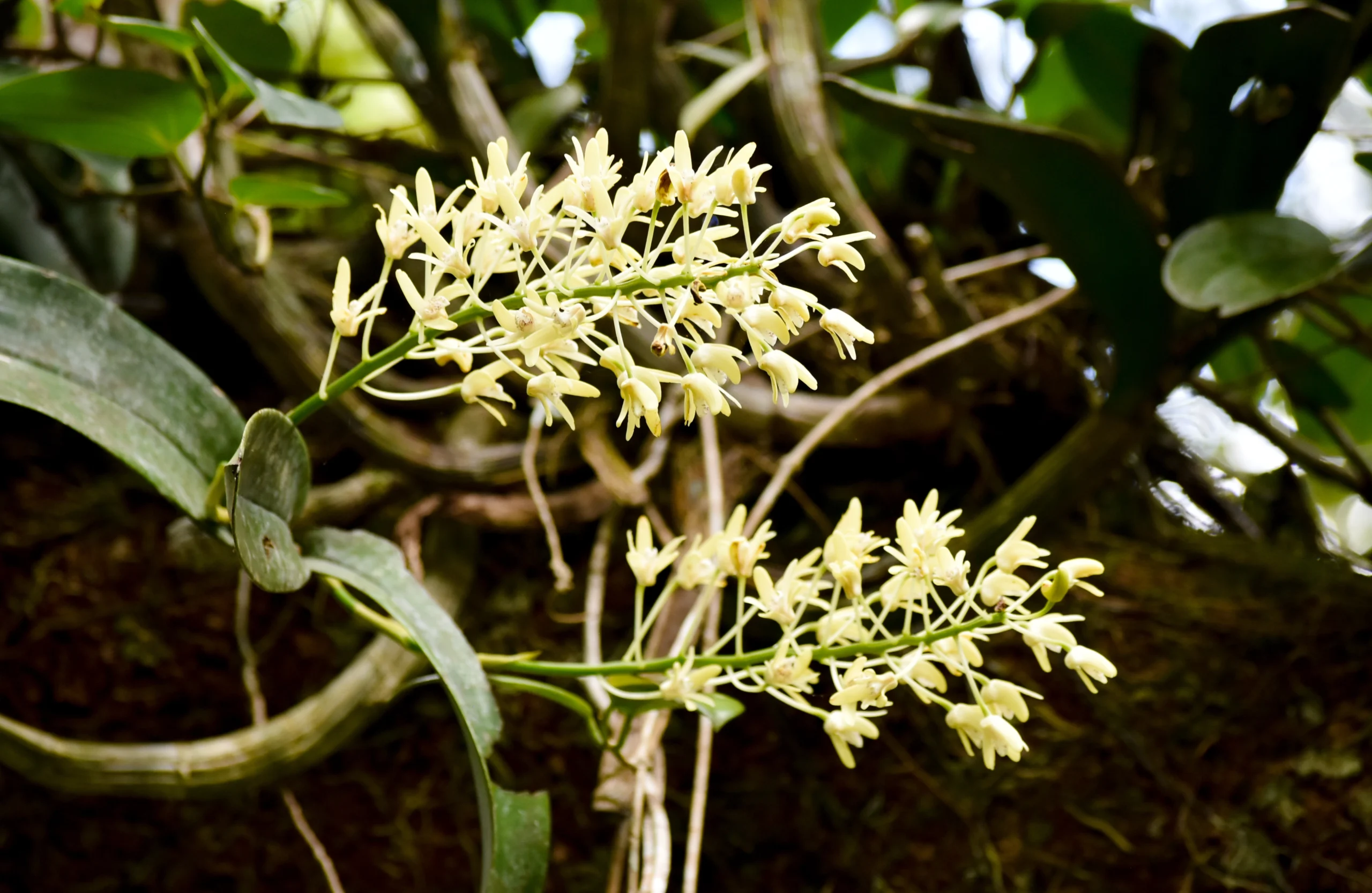
King Orchid flowers at Red Peak
The evolution of tropical orchids is a continuous process with new orchids emerging and adapting to their surroundings. Studies continue of these captivating plants. They serve as a testament to the age of the Wet Tropics World Heritage Rainforest and the incredible story through evolution of this Tropical North Queensland region.
Join a complimentary Ranger Guided Tour at Red Peak during your Skyral Rainforest Cableway experience to learn even more about this fragile and diverse ecosystem and its inhabitants, that have evolved over millions of years.

